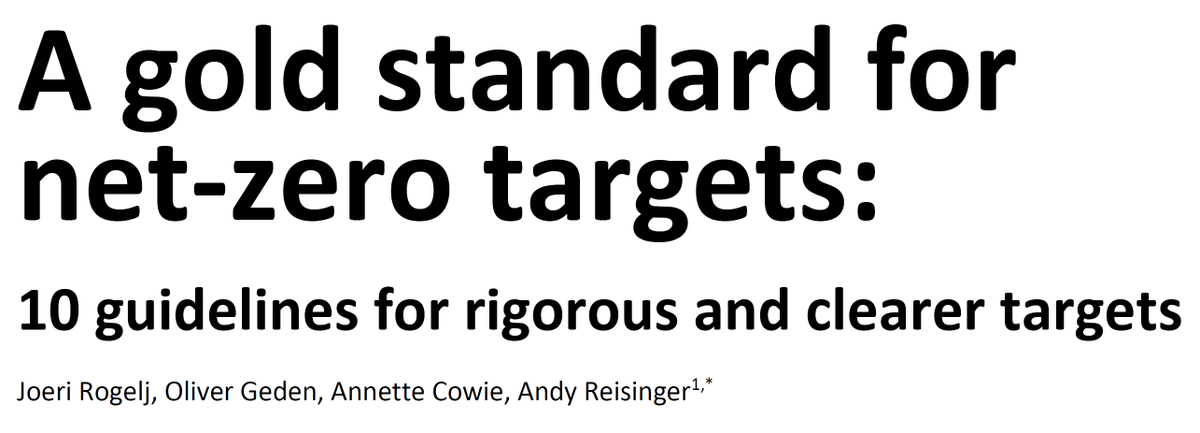
Today's news from Australia's @Science_Academy latest climate report: "limiting climate change to 1.5°C is now virtually impossible"
I'm quite confused by their finding & scientific evidence backing it up is questionable at best.
#auspol
- a thread (1/n)
smh.com.au/environment/cl…
I'm quite confused by their finding & scientific evidence backing it up is questionable at best.
#auspol
- a thread (1/n)
smh.com.au/environment/cl…
The @Science_Academy's analysis starts from carbon budgets reported in @IPCC_CH's 1.5°C Special Report's Table 2.2 (orig. below).
Then makes adjustments & updates.
Having had the pleasure to compile Table 2.2 for #SR15, let's compare and try to make sense of the numbers
(2/n)
Then makes adjustments & updates.
Having had the pleasure to compile Table 2.2 for #SR15, let's compare and try to make sense of the numbers
(2/n)

The @Science_Academy's table starts from IPCC's 1.5C carbon budget for a 50% chance.
(Note1: the table quotes either a wrong likelihood or a wrong number, but that's a detail)
(Note2: IPCC Table 2.2 is in GtCO2, the table below in GtC. Multiply by 3.6 to convert to GtCO2)
(3/n)
(Note1: the table quotes either a wrong likelihood or a wrong number, but that's a detail)
(Note2: IPCC Table 2.2 is in GtCO2, the table below in GtC. Multiply by 3.6 to convert to GtCO2)
(3/n)

The @Science_Academy report then removes -25 GtC to account for non-CO2 greenhouse gases.
I'm unsure where the number comes from, but the carbon budgets in Table 2.2 already account for non-CO2 GHG emissions.
So I'm confused what and why something is subtracted here.
(4/n)
I'm unsure where the number comes from, but the carbon budgets in Table 2.2 already account for non-CO2 GHG emissions.
So I'm confused what and why something is subtracted here.
(4/n)
It then removes emissions for 2018 and 2019 (-20 GtC)
That's understood. We did emit roughly that amount of CO2 in those two years. @gcarbonproject
(5/n)
essd.copernicus.org/articles/12/32…
That's understood. We did emit roughly that amount of CO2 in those two years. @gcarbonproject
(5/n)
essd.copernicus.org/articles/12/32…
Finally, it then removes 70 GtC to account for carbon-cycle feedbacks (but supported by an incorrect reference).
30 GtC is attributed to permafrost thaw referring to IPCC #SR15, but #SR15 reports 30 GtC for all additional Earth System feedbacks, not just permafrost.
(6/n)
30 GtC is attributed to permafrost thaw referring to IPCC #SR15, but #SR15 reports 30 GtC for all additional Earth System feedbacks, not just permafrost.
(6/n)
The remainder of 40 GtC for carbon-cycle feedbacks is even stranger: it is attributed to dieback of boreal and amazon forest.
However, the underlying study assessed this for 2°C of warming, not 1.5°C. Maybe values were linearly interpolated? The report doesn't explain.
(7/n)
However, the underlying study assessed this for 2°C of warming, not 1.5°C. Maybe values were linearly interpolated? The report doesn't explain.
(7/n)
After these confusing operations, the @Science_Academy reports that the remaining carbon budget for keeping warming to 1.5°C with 66% chance is very small.
No shocker there, and I fully agree!
(8/n)
No shocker there, and I fully agree!
(8/n)
However, the @Science_Academy report then jumps to conclusions saying that because the central range of 1.5°C budgets is small "limiting climate change to 1.5°C is now virtually impossible"
This is an unfortunate jump and miscommunication of the uncertainties involved.
(9/n)
This is an unfortunate jump and miscommunication of the uncertainties involved.
(9/n)
To be sure: limiting warming to 1.5°C is challenging.
It was in 2018 and it is so now
Global emissions need to be halved by 2030 & #NetZero CO2 reached by 2050
If we do so, @IPCC_CH #SR15 gives a 50% or slightly less chance that warming will ultimately stay below 1.5C.
(10/n)
It was in 2018 and it is so now
Global emissions need to be halved by 2030 & #NetZero CO2 reached by 2050
If we do so, @IPCC_CH #SR15 gives a 50% or slightly less chance that warming will ultimately stay below 1.5C.
(10/n)
The @IPCC_CH 1.5°C report also said that if current pledges by countries are followed until 2030, 1.5°C will be out of the window.
Also the @UNEP Emissions Gap Reports have highlighted this message over the past 5 years.
(11/n)
unep.org/emissions-gap-…
Also the @UNEP Emissions Gap Reports have highlighted this message over the past 5 years.
(11/n)
unep.org/emissions-gap-…
With actions today, we can increase the chances that warming is kept to 1.5°C.
Every action matters to keep warming to lower levels, but there is no certainty of success for specific warming limits.
It's a matter of (extreme) risk management.
(12/n)
Every action matters to keep warming to lower levels, but there is no certainty of success for specific warming limits.
It's a matter of (extreme) risk management.
(12/n)
Even if our chances are less than 50%, 1.5°C doesn’t suddenly become "virtually impossible" as the @Science_Academy report suggests. #auspol
That statement is not supported by the evidence & analysis provided - an unfortunate miscommunication of uncertainties and risk.
(end)
That statement is not supported by the evidence & analysis provided - an unfortunate miscommunication of uncertainties and risk.
(end)
Another option @Science_Academy might have used global warming expressed in GMST instead of GSAT.
This is probable, as both the number and likelihood then correspond. However, GMST is not recommended for carbon budgets and projections. @kasia_tokarska nature.com/articles/s4156…
This is probable, as both the number and likelihood then correspond. However, GMST is not recommended for carbon budgets and projections. @kasia_tokarska nature.com/articles/s4156…
• • •
Missing some Tweet in this thread? You can try to
force a refresh







